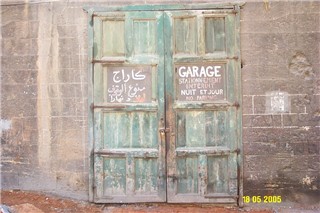If you think Haifa Wehbe or Hassan Nasrallah or Rafic Hariri are the most famous in Lebanon, think again... It is a 70 year old quiet American called
Seymour Hersh.
Since he published in
the New Yorker an article that reported "the US is funding alternative Sunni Muslim groups to combat the powerful Shia crescent it perceives to be growing in the Middle East from Iran via Syria to Lebanon and Hizbullah", Hersh has become a star for the pro-Syria politicians.
But where is the evidence?
Blast! and the evidence appears in North Lebanon. As soon as a radical Sunni group under the name of
Fateh el-Islam violently ambushed the Lebanese Army and the Lebanese Police, Hersh's story was revived as an evidence to point the blame for the recent clashes towards the pro-West current government.
Excuse me, I miss the logic.
Here
Ramsay Short replays the same story with the same mistake contradicting himself:
Short mentions that the leader of Fateh el-Islam "Shaker al-Abssi, was last imprisoned in Syria but subsequently released for the murder of a US diplomat in Jordan"
Yet he mentions that "Fatah al-Islam has not been armed by Syria at all but by Sunni Muslims, and even the Siniora government itself, with money from the Saudis and Americans pledged to Lebanon to help rebuild after last summer's Israeli war on the country."
I wander how the US is funding a militant who murdered one of its diplomats.
Looking at Hersh's story, I see it built on one weak line:
A statement by some obscure former MI6 British intelligence officer called Alastair Crooke, who now works in another obscure thinktank in Beirut called Conflicts Forum. Crooke tells Hersh (probably over a pint) that “The Lebanese government is opening space for these people to come in. It could be very dangerous.” Crooke continues, according to Hersh "that one Sunni extremist group, Fatah al-Islam, had splintered from its pro-Syrian parent group, Fatah al-Intifada, in the Nahr al-Bared refugee camp, in northern Lebanon. Its membership at the time was less than two hundred. Crooke “
was told that within twenty-four hours they were being offered weapons and money by people presenting themselves as representatives of the Lebanese government’s interests—presumably to take on Hezbollah,”
Who told this Crooke, we don't know.
Did anyone make some logical analysis that these militants came from Syria? - Not necessary.
Being few km from the Syrian borders and having sophisticated weapons? not thought of.
Any linkages with Syria's attempts and threats to hamper the efforts for international tribunal? Maybe a technicality!
Anyone looking at the Iraqi style and how Syria is supporting the militants there with arms and allowing them to pass? Not sure.
It is a shame how a story goes unchecked, I was told!




